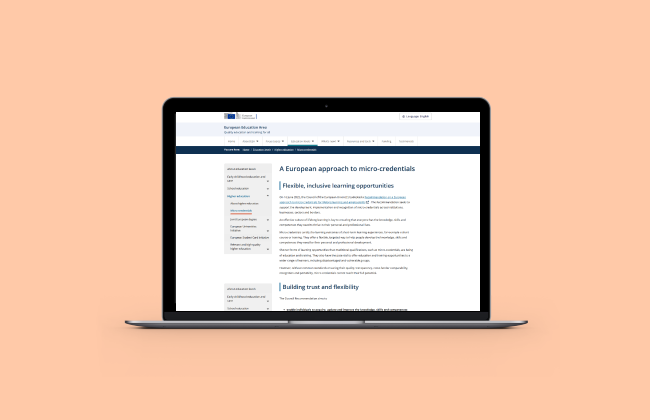What about the EU?

The education system in the European Union is starting to use the idea of micro-credentials, which is a new way to expand the curriculum through short courses. These focused learning experiences, often delivered online, end in stackable certificates that can be added to traditional diplomas. Importantly, micro-credentials are designed to develop specific skills or niche knowledge areas, usually requiring learning time equivalent to a certain number of ECTS (European Credit Transfer and Accumulation System) or ECVET (European Credit system for Vocational Education and Training) points (one point typically equals 25-30 hours of learning). This framework offers a promising way to enrich school curriculums while promoting a culture of lifelong learning within the EU. Micro-credentials are now a key topic in the education debate in some countries, for example in the Netherlands.
A micro-credential is proof of the learning outcomes that a learner has acquired following a short learning experience. These learning outcomes have been assessed against transparent standards. The proof is contained in a certified document that lists the name of the holder, the achieved learning outcomes, the assessment method, the awarding body and, where applicable, the qualifications framework level and the credits gained. Micro-credentials are owned by the learner, can be shared, are portable and may be combined into larger credentials or qualifications. They are underpinned by quality assurance following agreed standards (European Commission 2020).

